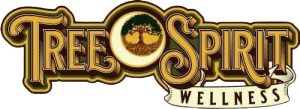When exploring cannabis products, you'll likely encounter both THC and THCA. While their names sound similar, they have distinct properties, effects, and legal implications. Whether you're new to cannabis or a seasoned enthusiast, understanding the differences between these two compounds can help you make informed decisions about consumption, benefits, and legality.
What Is THCA?
THCA (tetrahydrocannabinol acid) is the non-psychoactive, acidic precursor to THC found in raw and live cannabis plants. It is the most abundant cannabinoid in freshly harvested cannabis.
Properties of THCA:
- Non-psychoactive: Does not produce a "high."
- Converted through decarboxylation: When exposed to heat (e.g., smoking, vaping, or baking), THCA converts into psychoactive THC.
- Potential therapeutic benefits: Research suggests it may have anti-inflammatory, neuroprotective, and anti-emetic (anti-nausea) properties.
Common Sources of THCA:
- Raw cannabis leaves and flowers.
- Tinctures, capsules, and topicals specifically formulated to preserve THCA.
- Cold-pressed cannabis juices.
What Is THC?
THC (tetrahydrocannabinol), specifically Delta-9-THC, is the primary psychoactive compound in cannabis. It is responsible for the euphoric effects associated with marijuana use.
Properties of THC:
- Psychoactive: Binds to CB1 receptors in the brain, producing a "high."
- Activated through decarboxylation: Created when THCA is heated.
- Therapeutic benefits: Used for pain relief, appetite stimulation, nausea reduction, and sleep support.
Common Sources of THC:
- Smoked or vaporized cannabis.
- Edibles, oils, and tinctures.
- Capsules and infused products.
Key Differences Between THC and THCA
| Aspect | THCA | THC |
| Psychoactivity | Non-psychoactive | Psychoactive |
| Legal Status | Legal under Farm Bill guidelines | Federally illegal (Schedule I) |
| Source | Raw cannabis | Heated/decarboxylated cannabis |
| Consumption | Juicing, tinctures, topicals | Smoking, edibles, vaping |
| Therapeutic Uses | Anti-inflammatory, neuroprotective | Pain relief, appetite stimulation |
How Does THCA Become THC?
THCA converts to THC through decarboxylation, a process that involves applying heat. For example:
- Smoking/vaping: Instantly converts THCA to THC.
- Baking/edibles: Heating cannabis during cooking activates THC.
- Storage: Over time, THCA slowly converts to THC when exposed to light and air.
Legal Status: THC vs. THCA
THCA:
- Federally legal if derived from hemp (containing ≤0.3% Delta-9 THC).
- Available online and in stores without restrictions in many states.
THC:
- Federally illegal (classified as a Schedule I substance).
- Legal only in states with medical or recreational cannabis programs.
Which One Is Right for You?
Choose THCA If:
- You want potential therapeutic benefits without psychoactive effects.
- You prefer non-intoxicating products for daytime use.
- You are interested in raw cannabis consumption (e.g., juicing).
Choose THC If:
- You seek euphoric effects for recreation or symptom relief.
- You are managing pain, insomnia, or appetite loss.
- You live in a state where THC is legal.
FAQ
1. Does THCA show up on a drug test?
- THCA itself is not typically detected, but if consumed in ways that convert it to THC (e.g., smoking), it may result in a positive test.
2. Can you get high from THCA?
- No, unless it is decarboxylated into THC.
3. Which is stronger: THCA or THC?
- THC is psychoactively "stronger," but THCA may offer unique non-psychoactive benefits.
4. Are THCA products legal?
- Yes, if derived from hemp and containing ≤0.3% Delta-9 THC.







